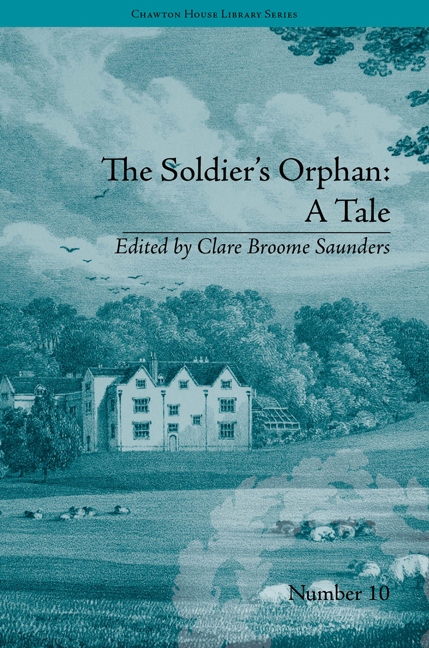Book contents
CHAP. VI
from The Soldier's Orphan: A Tale
Summary
Breathes there the man, with soul so dead,
Who never to himself hath said,
This is my own, my native land?
Whose heart hath ne'er within it burn'd,
As home his footsteps he hath turn'd,
From wandering on a foreign strand?
Scott's Lay of the Last Minstrel.‘On his return from one of those nocturnal rambles in search of food, he gave me to understand he had wandered in hopes of procuring some information that would be pleasing to me, near the town lately taken by the British; but, instead of hearing any thing pleasant to communicate, he had learnt that the native troops left in the town as prisoners had been liberated from confinement by some of their countrymen who were in British pay, and that they had risen on the Europeans/, massacred them all, and made themselves masters of the town.
‘I was struck with horror at this dreadful intelligence, which I did not doubt was true, well knowing the hatred which the Indians bear to Europeans, taken collectively. A few solitary instances may occur, as in my case; but, generally speaking, they dislike them, as they consider them tyrants and usurpers. The English too, from their natural disposition to reject suspicion, frequently lay themselves open to dangers, by placing such confidence in the natives, and enforcing customs and regulations to which they are strangers, and consequently averse.
‘My friendly host, observing the detestation my countenance expressed of the perpetrators of this horrible deed, seemed to think I should include him in the guilt of his countrymen, and extend my dislike to him in consequence. He therefore applied himself more assiduously/ to perform the several little offices he had been accustomed to do for me; and assured me that though some of his countrymen were bad, they were not all so; and that he would rather die than do me an injury, or any other person, even a Brahmin, who would kill him without remorse, if he approached him.
- Type
- Chapter
- Information
- The Soldier's Orphan: A Taleby Mrs Costello, pp. 190 - 195Publisher: Pickering & ChattoFirst published in: 2014



